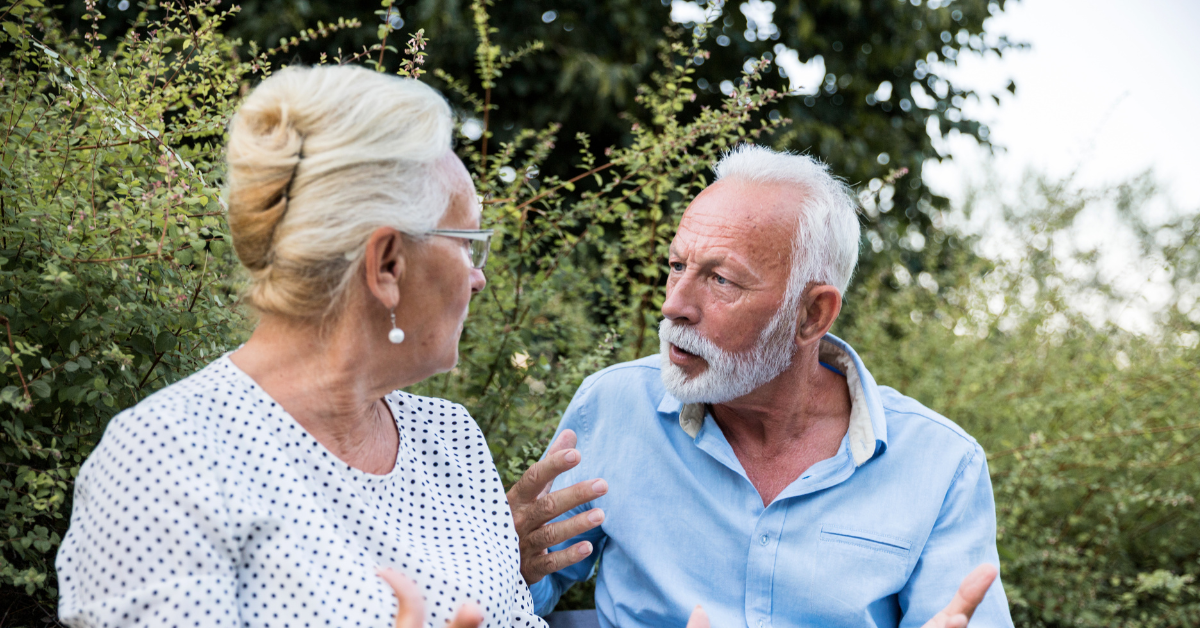
Why Don’t Men Ask For Help With Their Mental Health?
Well, it's not because they don’t need it — it’s because somewhere in the not so distant past, a memo went out saying "real men tough it out." And that memo got copied from one generation to the next. When we tell our sons to "man up," "don’t cry," or "deal with it," we think we’re teaching them to be independent. But what we’re really teaching them is to be isolated, even when they are experiencing depression, anxiety, anger, trauma, and stress. On this island, there’s no reason to ask for help or expect support to be given, so no one bats an eye when those boys grow up into men who retreat into work, distraction, reckless driving, rage, or stony silence.
Yet, according to the Centers for Disease Control and Prevention, men are 4 times as likely as women to die from suicide, and far less likely to seek help for their mental health. How can we encourage our husbands, fathers, friends, and sons to embrace the idea that choosing to be vulnerable and seeking therapy is not a sign of weakness?
men and The Myth of Helpless Heroes
We’ve all seen the emasculating commercials and memes where hot dads capable of providing either an income that supports a gleaming designer kitchen or full time parenting for an adorable messy toddler are suddenly flummoxed when a dark liquid goes flying toward their spotless white countertops. Cue slow motion as someone else steps in with the world’s greatest paper towel or spray cleanser to save the day. Is this grown man really so helpless that he needs to be rescued?
It is still considered culturally acceptable to assume men are clueless about cooking, cleaning, caregiving, and communicating, because these skills are associated with traditional female roles, where vulnerability is expected and the need for support is understood. But such assumptions lead us to believe that men do not need or want to be caring and communicative.
“Many boys grow up hearing that being strong is always a virtue, and anything less is weakness or unmanly. This is reinforced by parents, social media, and other sources. After all, no one tells their daughters to ‘woman up’, ” says Lifeologie Counseling Dallas therapist Jim Ming, LPC-A, whose specialties include trauma and men’s issues.
“Difficulties often surface when boys become men and they lack the awareness of what they are feeling, or the vocabulary to talk about it. Not only does this make it tough for a man to talk about his emotions and how they affect him, but it can also create a blind spot that causes difficulties in relationships,” he adds.
how can a men's issues specialty therapist help?
“Many men come to counseling because they feel angry or frustrated, and they cannot figure out why," Ming explains. "In therapy, we can work on developing the awareness of emotions and allowing them to be experienced safely and without judgment. This can lead to greater emotional intelligence, and the ability to experience and manage feelings while not being overtaken by them.”
men’s mental health may manifest differently
The National Institutes of Health has found that although both men and women report stress, anxiety, and depression, men’s symptoms often present differently. Men are also far more likely to self-medicate with alcohol, which can be socially encouraged and may increase their risk for an alcohol use disorder. Other common symptoms of mental health issues include:
- Anger, irritability, or aggressiveness
- Noticeable changes in mood, energy level, or appetite
- Difficulty sleeping or sleeping too much
- Difficulty concentrating, feeling restless, or on edge
- Feeling flat or having trouble feeling positive emotions
- Engaging in high-risk activities
- Aches, headaches, or digestive problems without a clear cause
how to support men struggling with their mental health
Ming offers a few suggestions for helping parents, partners, and friends encourage the men in their life to open up:
- Just listen.
- Avoid using judgmental language ( “you need to man up’).
- Teach boys that experiencing big emotions is a normal part of life.
- Remind them it’s okay to express those feelings in appropriate ways.
When we pave the way for expressing feelings in a healthy way, we can communicate to boys and men that expressing emotions is a sign of strength rather than weakness. It’s critical to normalize this behavior, because it challenges traditional gender stereotypes that can lead to toxic masculinity or discourage men from seeking help or displaying vulnerability. By valuing emotional expression, we empower them to build stronger relationships, address mental health concerns, and lead more fulfilling lives. When men feel safe and supported in sharing their experiences, it not only benefits them individually but also strengthens relationships, family bonds, and communities.
It can be scary to let yourself be vulnerable! Consider taking the time to find a therapist who gets you and where you’re coming from, or to find a men’s support group that offers counseling and camaraderie. Search our Lifeologie Counseling experts who specialize in men’s issues here to get started!

About Lifeologie
Lifeologie Counseling was founded in 2000 with one goal in mind — to bring a fresh, innovative approach to the everyday problems of life. Creative solutions to stuck problems®. With our unique multi-specialty, collaborative approach, Lifeologie Counseling helps individuals and families heal their wounds and break out of old, unhealthy patterns.




